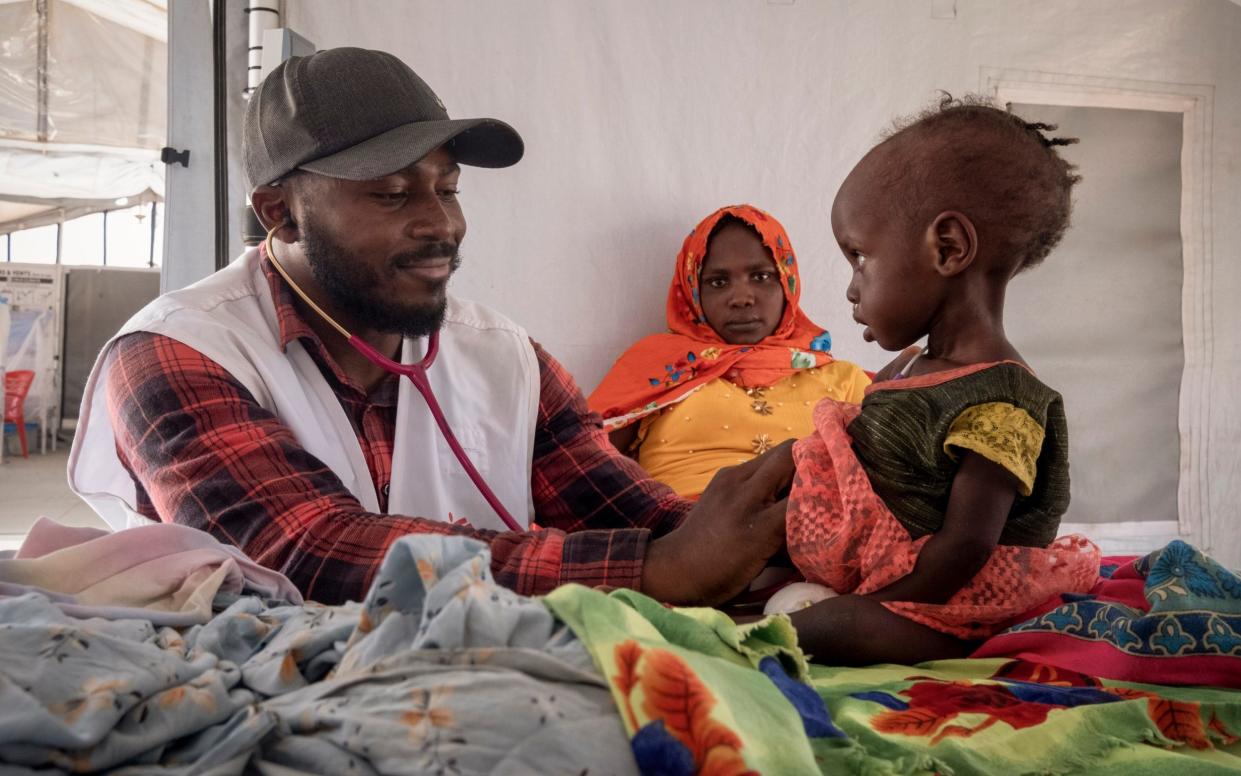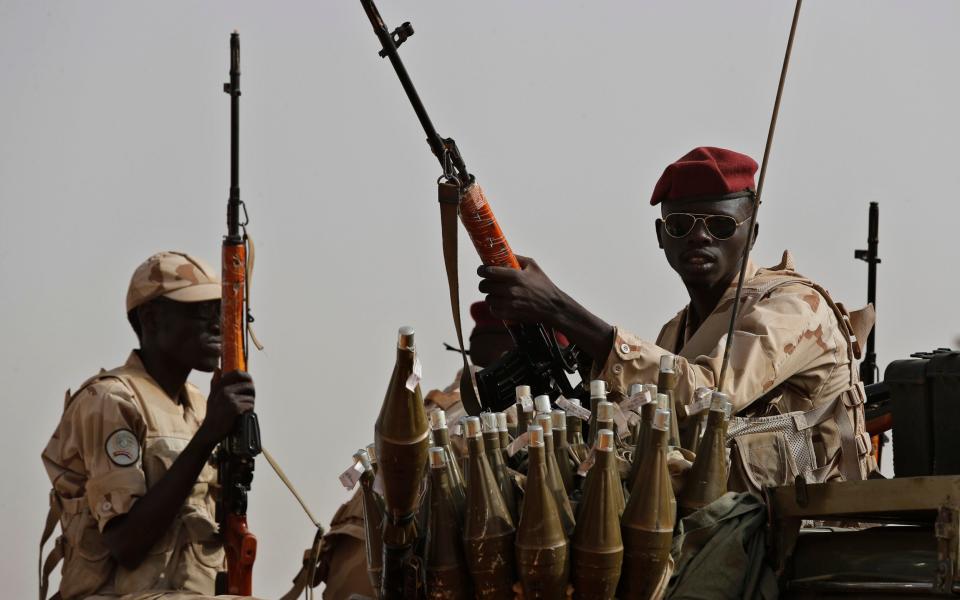Famine risk rises across Sudan as conflict crisis deepens, says UN-backed report

Sudan is battling the worst levels of food insecurity on record, with a risk of famine in 14 areas across the war-ravaged nation if the conflict between military factions escalates further, the UN’s global hunger monitor says.
Some 755,000 people in Sudan face the most severe level of extreme hunger, while more than eight million, or 18 per cent, of the population face food shortages that could result in acute malnutrition and death, according to the latest analysis by the Integrated Food Security Phase Classification (IPC).
The northeast African nation is being destroyed by a war that broke out in April last year, when simmering tensions between the country’s armed forces and a notorious paramilitary group, the Rapid Support Forces (RSF), erupted into open fighting in the capital Khartoum.
The bitter conflict has cut the country in two, triggered waves of ethnically-driven violence in the western region of Darfur and caused the world’s biggest internal displacement crisis, forcing almost 12 million people to flee their homes.
The IPC said its assessment meant that famine could occur with reasonable probability under a worst-case scenario in 14 areas, including parts of Darfur, Khartoum, Kordofan and El Gezira state.
Famine is a technical specification that is only declared if at least 20 per cent of the population in an area are suffering extreme food shortages, with at least 30 per cent of children acutely malnourished and two people out of every 10,000 dying daily from starvation or the interaction of malnutrition and disease.
Just two declarations of famine have been made since the IPC warning system was created 20 years ago – in parts of Somalia in 2011 and in parts of South Sudan in 2017.
“Today’s report must serve as a critical wakeup call for the international community,” said Mohammed Qazilbash, Sudan Country Director for Plan International. “Sudan is teetering on the brink of a catastrophic famine, with millions of children now at imminent risk of starvation.”
The IPC says there has been a “stark and rapid deterioration of the food security situation” in the last six months, with increased conflict fuelling levels of acute food insecurity to rocket by 45 per cent, from 17.7 million to 25.6 million, including a 74 percent increase, a 3.6 million surge, in “emergency” levels of hunger.
Sudan’s army has been accused of using access to food as a weapon of war, as they prevent food deliveries to cross the battle lines into areas controlled by the RSF.
The disruption of supply chains has caused economic shocks around the country – particularly in urban centres in Khartoum, North Darfur and Al Jazirah states – with food prices for staple items surging up to 296 per cent, says the IPC.

The report says that the situation is “especially critical” for those trapped in the areas experiencing direct conflict – particularly in Greater Darfur, Greater Kordofan, Khartoum and Al Jazirah states – where aid and food supplies have been heavily restricted.
It adds that where safety nets and local responses in these areas have prevented the further decline of food insecurity, the “sustainability” of these mechanisms “remains unclear”, particularly in conflict affected areas where food stocks are close to depletion.
“These new figures should make our blood run cold,” said Dr Arif Noor, Save the Children Country Director in Sudan. “Fourteen months of devastating conflict have turned Sudan’s breadbasket into battlefields.”
The insecurity has decimated Sudan’s once thriving agricultural areas – including Darfur, Kordofan and Khartoum – upending food systems, killing thousands of farmers, and bleeding markets dry.
“Many farmers tell us it’s too dangerous for them to plant or harvest due to the presence of armed groups, while traders and food trucks get looted and obstructed on the roads, and aid convoys are obstructed and denied permits,” said Elsadig Elnour, Islamic Relief Country Director in Sudan.
The IPC report also warned that the looming rainy season – that has already seen floods devastated pockets of eastern Africa – will further hinder the agricultural yield with the spread of pests and plant diseases.
UN officials warned on Monday that Sudan is facing a famine that could reach levels worse than the world has seen since Ethiopia 40 years ago, as aid deliveries continue to be blocked by the warring armies.
With much of global media attention and donor funding focussed on Gaza, where another human-made food security is spiralling out of control, Sudan has been left to plunge towards a disaster of historic scale.
A recent UN humanitarian appeal for the country received just 16 per cent of the humanitarian funds required.
“Hunger and malnutrition are spreading at alarming rates, and without concerted international action and funding, there is a very real danger the situation will spiral out of all control,” said UNICEF Executive Director Catherine Russell.
“There is no time to lose. Any delay in unfettered access to vulnerable populations will be measured in the loss of children’s lives.”
Protect yourself and your family by learning more about Global Health Security

 Yahoo News
Yahoo News 
